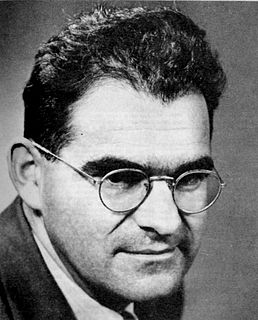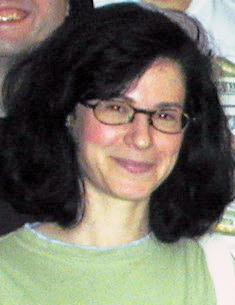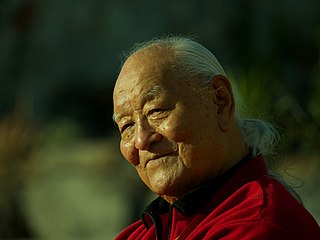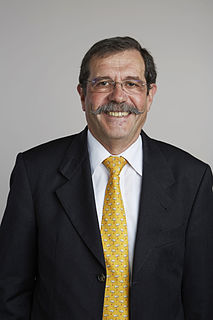A Quote by Albert Einstein
Physical concepts are free creations of the human mind, and are not, however it may seem, uniquely determined by the external world.
Related Quotes
...the physicist cannot simply surrender to the philosopher the critical contemplation of the theoretical foundations; for, he himself knows best, and feels more surely where the shoe pinches...Physical conceptions are free creations of the human mind, and are not, however it may seem, uniquely determined by the external world.
The belief in an external world independent of the perceiving subject is the basis of all natural science. Since, however, sense perception only gives information of this external world or of "physical reality" indirectly, we can only grasp the latter by speculative means. It follows from this that our notions of physical reality can never be final. We must always be ready to change these notions - that is to say, the axiomatic basis of physics - in order to do justice to perceived facts in the most perfect way.
We have two main instruments: the mind and the heart. The mind finds it difficult to be happy, precisely because the mind consciously enjoys the sense of separativity. It is always judging and doubting the reality in others. This is the human mind, the ordinary physical mind, the earth-bound mind. But we also have the aspiring heart, the loving heart. This loving heart is free from insecurity, for it has already established its oneness with the rest of the world.
The job of the linguist, like that of the biologist or the botanist, is not to tell us how nature should behave, or what its creations should look like, but to describe those creations in all their messy glory and try to figure out what they can teach us about life, the world, and, especially in the case of linguistics, the workings of the human mind.
It is immediately apparent, however, that this sense-world, this seemingly real external universe - though it may be useful and valid in other respects - cannot be the external world, but only the Self's projected picture of it ... The evidence of the senses, then, cannot be accepted as evidence of the nature of ultimate reality; useful servants, they are dangerous guides.
Duality is the real root of our suffering and of all our conflicts. All our concepts and beliefs, no matter how profound they may seem, are like nets which trap us in dualism. When we discover our limits we have to try to overcome them, untying ourselves from whatever type of religious, political, or social conviction may contain us. We have to abandon such concepts as 'enlightenment', 'the nature of the mind', and so on, until we no longer neglect to integrate our knowledge with our actual existence.
The adoption of the required attitude of mind towards ideas that seem to emerge "of their own free will" and the abandonment of the critical function that is normally in operation against them seem to be hard of achievement for some people. The "involuntary thoughts" are liable to release a most violent resistance, which seeks to prevent their emergence. If we may trust that great poet and philosopher Friedrich Schiller, however, poetic creation must demand an exactly similar attitude.
Freedom of mind is the real freedom. A person whose mind is not free though he may not be in chains, is a slave, not a free man. One whose mind is not free, though he may not be in prison, is a prisoner and not a free man. One whose mind is not free though alive, is no better than dead. Freedom of mind is the proof of one's existence.



































